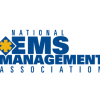When everything clicks, there are few things more professionally energizing than a great conference experience. Like a top chef making a sumptuous meal, the best conference planners know that creating a special meeting requires a blend of many ingredients, cooked to perfection. Start with a great hotel and location, mix in cutting-edge topics and faculty, add superlative service, and then stir in what could be most important to the overall flavor but the hardest to control: great networking.
I have the good fortune of being able to develop and attend a variety of EMS meetings annually. In the numerous participant surveys I’ve conducted over the years, the top value/attraction, as you’d expect, is the session topics. But always a close second (and more frequently a first) is networking. Some conferences are better at facilitating this than others, but ultimately it is you, the attendee, who must make the most of your networking opportunities. With that in mind, I’ve developed a list of seven ways you can enhance your networking at meetings.
- Book early. A basic but often neglected rule: Make your hotel reservation far in advance! Nothing kills the ability to network like being in a distant hotel, far from the action.
- Be a facilitator. It’s natural to want to hang out with people from your organization, but you already spend a lot of time with them. Make a goal to plan at least one dinner where you bring people together who don’t know each other but should. Get reservations for a group of six, invite four in advance and be open to inviting a person or two you meet at the conference. (It’s fine to let everyone know they’re responsible for their own bill.)
- Get social. If you’re not doing it already, use Facebook, LinkedIn or other social media to let people know your schedule, find out who’s coming and when, and what people are interested in.
- Get down to basics. A business card may be old-fashioned, but it’s still a basic tool of the trade. Be sure to have plenty on hand—and design them so you can write on the back!
- Master the gift of gab. Extroverts have an advantage in networking because they can strike up a conversation with anyone at any time. If you’re on the introverted side, push yourself to engage with your fellow attendees. People love to talk about themselves, so find out how what your common interests are—sports, family, travel, places you’ve visited or lived and go from there. Professional networks are built on personal connections.
- Chat up the faculty. Some of your most valuable contacts come from connecting with faculty. Don’t be intimidated about approaching them after a session or in the hallway—they want to meet with you, too.
- Remember the details. Memory is the lubricant of networking—the best networkers remember names, mutual friends and personal things about the person they connected with. They also know their job doesn’t end with the plane trip back; they send follow-up e-mails to confirm a connection and update their address books with not just the person’s contact info but also personal details like the spouse’s name, the kids’ ages and special interests.
Keith Griffiths can be reached at editorinchief@emergencybestpractices.com.












